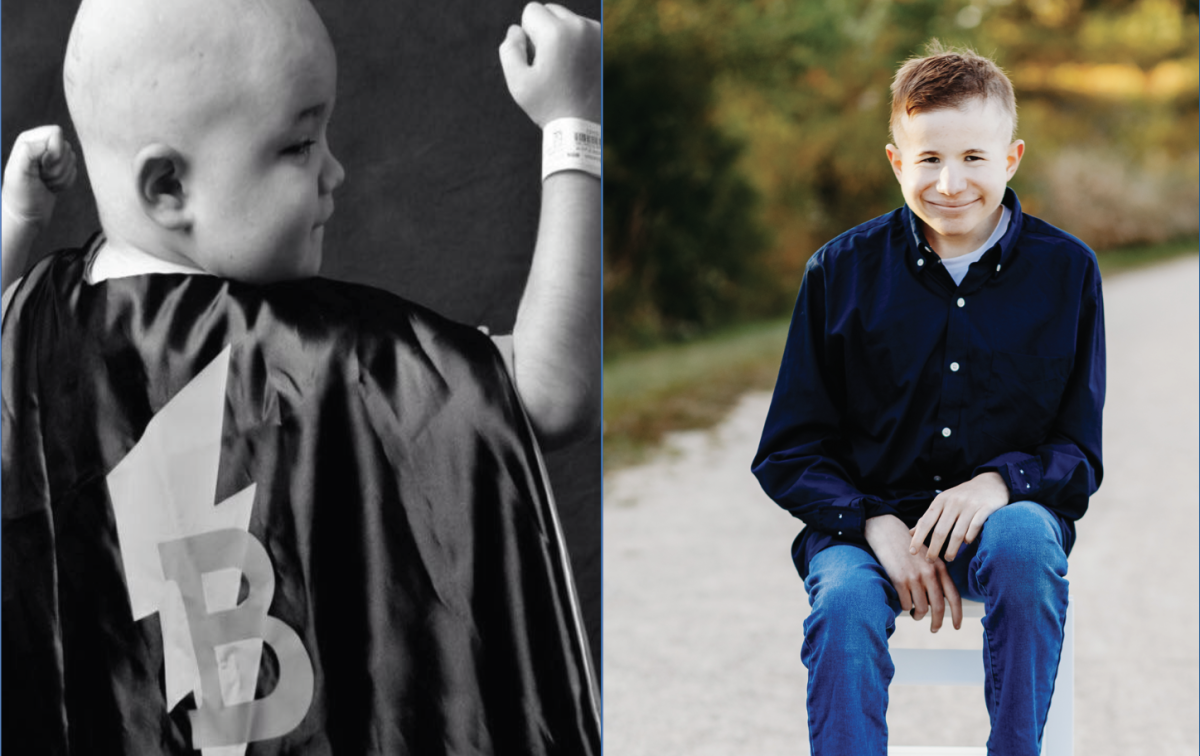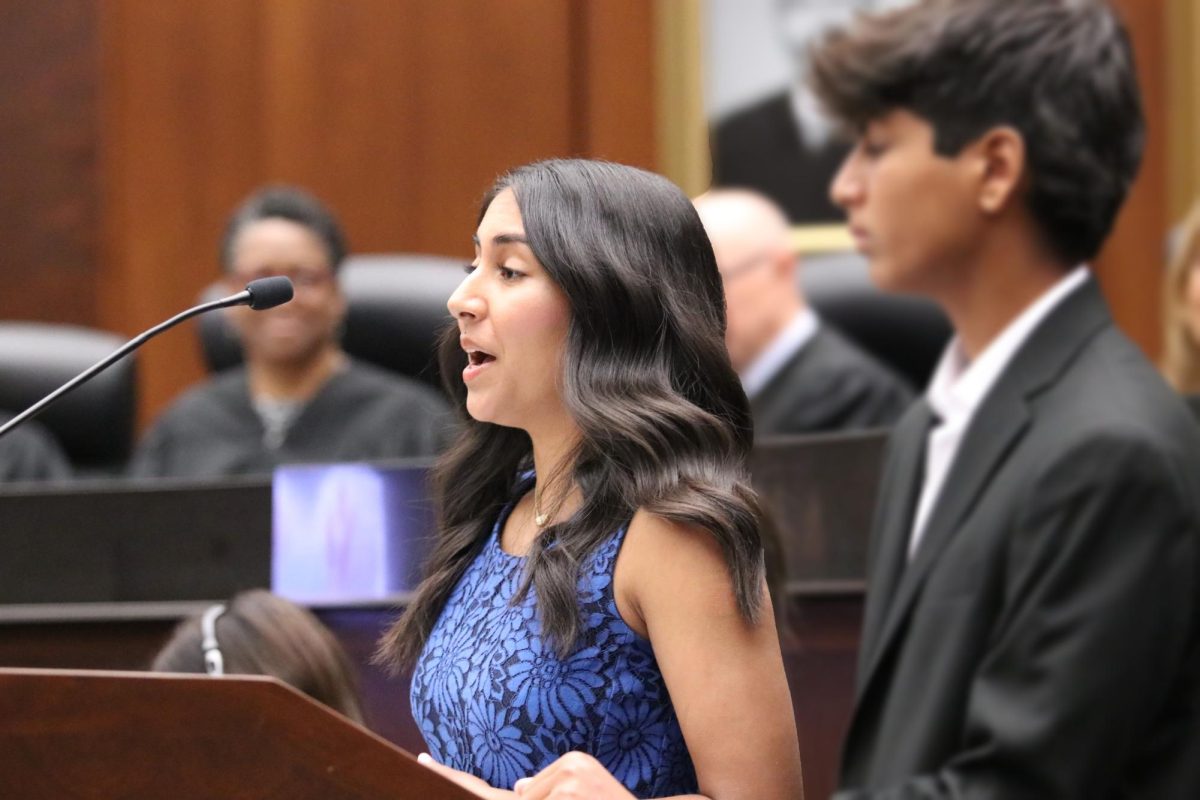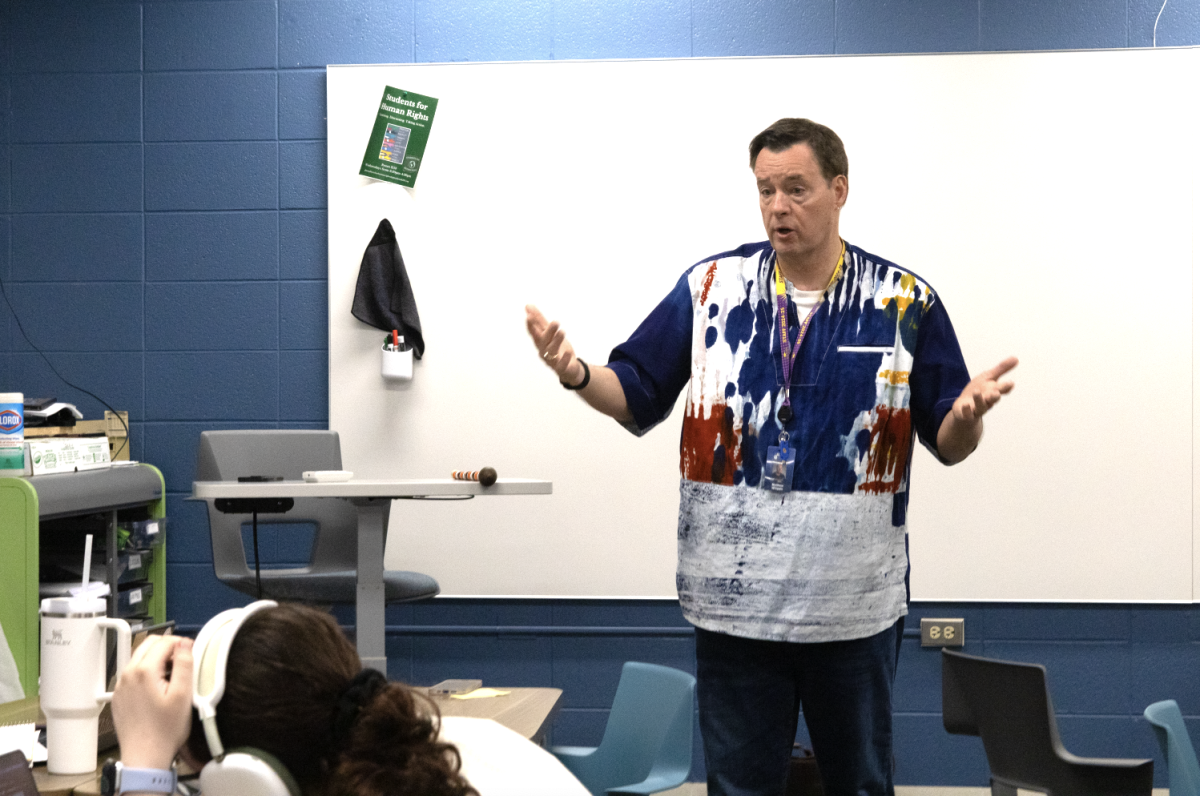As December concludes, South students look forward to celebrating the holiday season with family and friends. The Oracle reports on Christmas and Hanukkah traditions, the history and customs of Kwanzaa and what the holiday season is like for atheists.
KWANZAA
Sophia Almeroth
staff reporter
One holiday that occurs at the same time as Christmas and Hanukkah, but is not as publicized, is Kwanzaa.
Kwanzaa is an African American and Pan-American holiday that celebrates family, community and culture.
It is celebrated annually from Dec. 26 to Jan. 1.
According to an Oracle-conducted survey of 248 students, 83 percent do not know what Kwanzaa is.
Families celebrating Kwanzaa use a kinara, which is a candleholder, and place seven candles upon it representing the seven principles of the Kwanzaa celebration.
According to the same Oracle-conducted survey, no students currently celebrate Kwanzaa at South. Junior Nygel Crawford, who is African American, believes his family does not celebrate Kwanzaa because they have adapted to American culture.
“My family has been living in America for a couple of generations and we’ve kind of integrated into Christianity and celebrated Christmas more,” Crawford said. “We don’t know too much about our own culture.
Crawford believes Kwanzaa does not hold any special significance towards him.
“We, [African Americans], being in an entirely different part of the world right now [may] believe we can hold on to our roots and never forget where we’re from,” Crawford said. “But the people that were born [here] and [grew] up in America have already forgotten.”
According to the survey, 95 percent of students said they do not know anyone who celebrates Kwanzaa.
Crawford believes it would be beneficial in preserving their culture if more African Americans were to celebrate Kwanzaa.
“It wouldn’t be too bad if the African American generation at [South] would celebrate it a little more because I’m assuming most of us really don’t know too much about our culture and a couple days out of the year would help with that,” Crawford said.
ATHEISM
Madison O’Brien
staff reporter
One might picture the winter season full of holiday-themed symbols such as Christmas trees, menorahs and kinaras. But, it should be kept in mind that these religious symbols do not apply to everyone.
An atheist is defined as a person who denies or disbelieves the existence of a supreme being or beings.
Junior Tim Hofmockel is an atheist and does not believe in being dictated by a “super natural force”. However, Tim still celebrates certain holidays.
Tim’s sister, freshman Anna Hofmockel, has similar beliefs.
“[My family] has always celebrated Christmas, but it never is about the religious aspect; it’s always been about being around family,” Anna said. “I love Christmas music and the traditions we have, like decorating the tree.”
According to Tim, his family has always participated in the cultural traditions of Christmas such as giving presents and Santa.
Junior Carly Bryeans* celebrates Christmas excluding the religious aspects of it as well.
“My entire extended family is religious so when we gather for these events it’s more of a family thing,” Bryeans said. “We have most of the same traditions that [Christian] families do. We exchange gifts, decorate a tree and go to Chicago to see the lights […]”
While some atheists celebrate the holidays, not all do. According to sophomore atheist Nick Moses, this will be the first year he does not celebrate Christmas the way he has in past years.
“My mom is a flight attendant at United Airlines so we like to travel a lot over the holidays,” Moses said. “Also, I just feel like if I were to bash Christianity all year and then take free presents from it on Christmas it would be hypocritical and unfair of me.”
Additionally, Moses has expressed concerned regarding the way people commonly perceive atheists.
“A lot of people say atheists don’t have morality, or there is no purpose for life, but the thing is, I have this incredible wonder for the way the world works,” Moses said. “I think things are amazing and the world is amazing and I find it very uplifting that we are in control of our own destiny.”
*Name has been altered at student’s request
CHRISTMAS
Shea Anthony
staff reporter
Stockings hang above the wood-burning fire, the aroma of freshly baked cookies fills the room and sleeping children dream about what they’re going to receive from Santa; this is a taste Christmas.
Sophomore Isabel McCanna believes that the spirit of Christmas brings people together in a unique way that can only be recognized around this time of year.
“The environment is great, the sense of community and happiness everyone has is awesome […] it’s almost hard not to be joyful,” McCanna said.
South students share common traditions when it comes to celebration. The majority of students said family, food and gift-giving is part of their routine on Christmas day.
Junior Katie Vanderveen described one of her family’s Christmas traditions.
“Every Christmas Eve, my family and I go to church and then to dinner,” Vanderveen said. “After we eat, we open one present […] Then, on Christmas day, we always wake up early and open the presents before breakfast.”
Sophomore Erin Karnig’s family has a Christmas ritual of getting together the day before Christmas and baking cookies all day.
Aside from the social side of Christmas, the holiday itself also centers around religion.
Christmas is a holiday meant to rejoice in the birth of Jesus Christ, but the religious aspect of it is has become more insignificant in the entire grandeur of the celebration, according to sophomore Charlotte Kelly.
“I think Christmas is whatever you want it to be,” Kelly said. “I think it’s about being with the people you love whether you focus on the birth of Christ or just enjoy the people you’re with.”
HANUKKAH
Grace Abiera
staff reporter
Menorahs, dreidles and family traditions are just some bits and pieces of the Jewish celebration of Hanukkah. While these are some of the commercialized proponents, for many students, Hanukkah is much more than that.
According to freshman Tessa Nesis, the miracle of Hanukkah is the fact that the candles on the menorah were able to last eight days.
Junior Josh Schwartz-Dodek noted that Hanukkah is a time for the whole family to come together and celebrate.
“We celebrate [Hanukkah] as a family,” Schwartz-Dodek said. “On the first night, we light the first candle and say a special prayer. There’s a special one for the first night, and usually we have dinner together.”
Junior Amanda Blackman believes that the traditions her family participates in on Hannukah significantly add to the holiday spirit.
“In my family, all five of us get our own Menorah that we light each night,” Blackman said. “After we light, we all go to the music room in our house and we are allowed to open one present each night.”
Nesis noted a unique family tradition which is part of her Hanukkah celebration every year.
“In third grade, I went to Color Me Mine in the Glen with my family and I painted my own personal Menorah,” Nesis said. “[…] Ever since then, I’ve used it [during Hanukkah].
Blackman noted that although Hanukkah is not the most religiously significant Jewish holiday celebrated by her family during the year, it is still an important holiday to her and her family.
“I definitely look forward to Hanukkah the most […] mostly because my family really gets into every Jewish holiday whether it’s big or little, and Hanukkah is just another [opportunity] for my family to come together and make life- long memories,” Blackman said.







